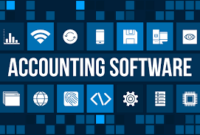Unleash Your Business Potential with the Best CRM Software
As a business owner or manager, you know how crucial it is to build and maintain strong relationships with your customers. That’s where CRM software comes in. Customer Relationship Management (CRM) software is a powerful tool that enables businesses to streamline their customer interactions, enhance productivity, and drive business growth. In this comprehensive guide, we will explore the world of CRM software, highlighting its importance, key features and functionalities, top software options, factors to consider when choosing CRM software, and how to determine the best fit for your business.
Introduction
A. Define CRM (Customer Relationship Management) software and its importance
CRM software is a technology solution designed to help businesses manage and nurture their customer relationships effectively. It provides a centralized hub for storing and accessing customer information, automating sales and marketing processes, and analyzing data to gain valuable insights. With CRM software, businesses can improve customer satisfaction, increase sales efficiency, and drive overall business growth.
B. Highlight the benefits of using CRM software for businesses
The benefits of using CRM software are manifold. Firstly, it allows businesses to have a 360-degree view of their customers by consolidating all customer data in one place. This enables personalized and targeted communication, leading to better customer engagement and increased loyalty. Additionally, CRM software helps businesses streamline their sales processes, manage leads and opportunities, and track sales pipelines, resulting in improved conversion rates and revenue generation. Moreover, CRM software provides robust reporting and analytics capabilities, allowing businesses to measure performance, identify trends, and make data-driven decisions. Finally, CRM software can integrate with other essential tools and systems, such as email marketing platforms and customer support software, enabling seamless workflows and enhanced productivity.
Key Features and Functionality of CRM Software
CRM software offers a wide range of features and functionalities that empower businesses to effectively manage their customer relationships. Let’s delve into some key features commonly found in CRM software:
A. Contact and lead management
CRM software enables businesses to store and organize customer contact information, including names, email addresses, phone numbers, and social media profiles. It also facilitates lead management by capturing leads from various sources, assigning them to sales representatives, and tracking their progress through the sales funnel.
B. Sales and pipeline management
With CRM software, businesses can track their sales activities and manage the entire sales process from lead generation to deal closure. It provides visibility into the sales pipeline, allowing businesses to identify bottlenecks, prioritize leads, and forecast revenue accurately.
C. Customer communication and interaction tracking
CRM software enables businesses to centralize customer communication by capturing emails, phone calls, meetings, and notes in one place. This ensures that all interactions with customers are logged, providing a comprehensive history of engagements for future reference and analysis.
D. Reporting and analytics
CRM software offers robust reporting and analytics capabilities, allowing businesses to measure and evaluate their performance metrics. It provides insights into sales, customer behavior, and marketing campaigns, enabling businesses to identify areas for improvement, track KPIs, and make data-driven decisions.
E. Integration capabilities
CRM software can integrate with various tools and systems, such as email marketing platforms, customer support software, and accounting software. This integration streamlines workflows, eliminates duplicate data entry, and ensures seamless data flow between different departments, enhancing overall efficiency.
Top CRM Software Options
Now that we understand the importance and key features of CRM software, let’s explore some of the top CRM software options available in the market:
A. CRM software option 1
1. Overview of the software
[Provide an overview of CRM software option 1]
2. Key features and functionalities
[Detail the key features and functionalities of CRM software option 1]
3. Pricing and plans
[Discuss the pricing and plans of CRM software option 1]
4. Pros and cons
[Present the pros and cons of CRM software option 1]
5. Customer reviews and ratings
[Include customer reviews and ratings of CRM software option 1]
Factors to Consider When Choosing CRM Software
Choosing the right CRM software for your business is a critical decision. Here are some factors to consider during the selection process:
A. Scalability and customization options
Ensure that the CRM software can scale with your business as it grows. Look for customization options that allow you to tailor the software to your specific needs and workflows.
B. Integration with existing tools and systems
Check if the CRM software can seamlessly integrate with the tools and systems your business already uses, such as email marketing platforms, customer support software, or accounting software. This integration will eliminate data silos and streamline processes.
C. Ease of use and user interface
Consider the usability of the CRM software. A user-friendly interface and intuitive navigation will encourage adoption among employees and reduce the learning curve.
D. Customer support and training resources
Evaluate the level of customer support provided by the CRM software vendor. Look for training resources, documentation, and responsive support channels to ensure a smooth implementation and troubleshooting process.
E. Security and data protection
Ensure that the CRM software prioritizes data security and offers robust measures to protect sensitive customer information. Look for features like encryption, access controls, and regular data backups.
Determining the Best CRM Software for Your Business
Choosing the best CRM software for your business requires careful consideration. Here’s a step-by-step guide to help you make an informed decision:
A. Assessing your specific business needs and goals
Identify the unique requirements of your business and define the goals you want to achieve with CRM software. This will help you prioritize features and functionalities during the evaluation process.
B. Evaluating the features and functionalities of each CRM software option
Compare the key features and functionalities of different CRM software options against your business needs. Consider factors such as contact management, sales automation, reporting capabilities, and integration options.
C. Considering budget and pricing options
Review the pricing models and plans offered by CRM software vendors. Consider your budget and evaluate the value provided by each option in relation to its cost.
D. Seeking recommendations and consulting with experts or peers
Seek recommendations from trusted sources, such as industry experts, peers, or online communities. Their insights and experiences can provide valuable guidance in selecting the
right CRM software for your business.
Implementation and Adoption of CRM Software
Implementing and adopting CRM software effectively is key to harnessing its full potential. Here are some essential steps to follow:
A. Planning the implementation process
Create a detailed implementation plan that outlines the steps, timelines, and responsibilities for deploying CRM software in your business. Consider factors such as data migration, customization, and integration requirements.
B. Training employees on using the CRM software
Provide comprehensive training to employees on how to use the CRM software effectively. Offer hands-on workshops, online tutorials, or access to training resources provided by the CRM software vendor.
C. Integrating the software with existing workflows
Ensure a seamless integration of the CRM software with your existing workflows and processes. Modify and align your workflows to take advantage of the new capabilities offered by the CRM software.
D. Encouraging adoption and usage among employees
Encourage employees to embrace the CRM software by highlighting its benefits and demonstrating its impact on their daily work. Recognize and reward employees who actively use the CRM software and share success stories to inspire others.
Case Studies or Success Stories
Real-life examples can offer insights into the benefits of CRM software implementation. Here are some case studies or success stories of businesses that successfully implemented CRM software:
A. [Case study 1]
[Highlight a real-life example of a business that successfully implemented CRM software]
B. [Case study 2]
[Highlight another real-life example of a business that successfully implemented CRM software]
Conclusion
In today’s competitive business landscape, effectively managing customer relationships is paramount to success. CRM software provides businesses with the tools they need to streamline customer interactions, drive sales, and foster growth. By considering the key features, factors, and case studies discussed in this article, you can make an informed decision and select the best CRM software that aligns with your business needs and goals. Remember, choosing the right CRM software is an investment in optimizing customer relationships and unlocking your business’s full potential.



